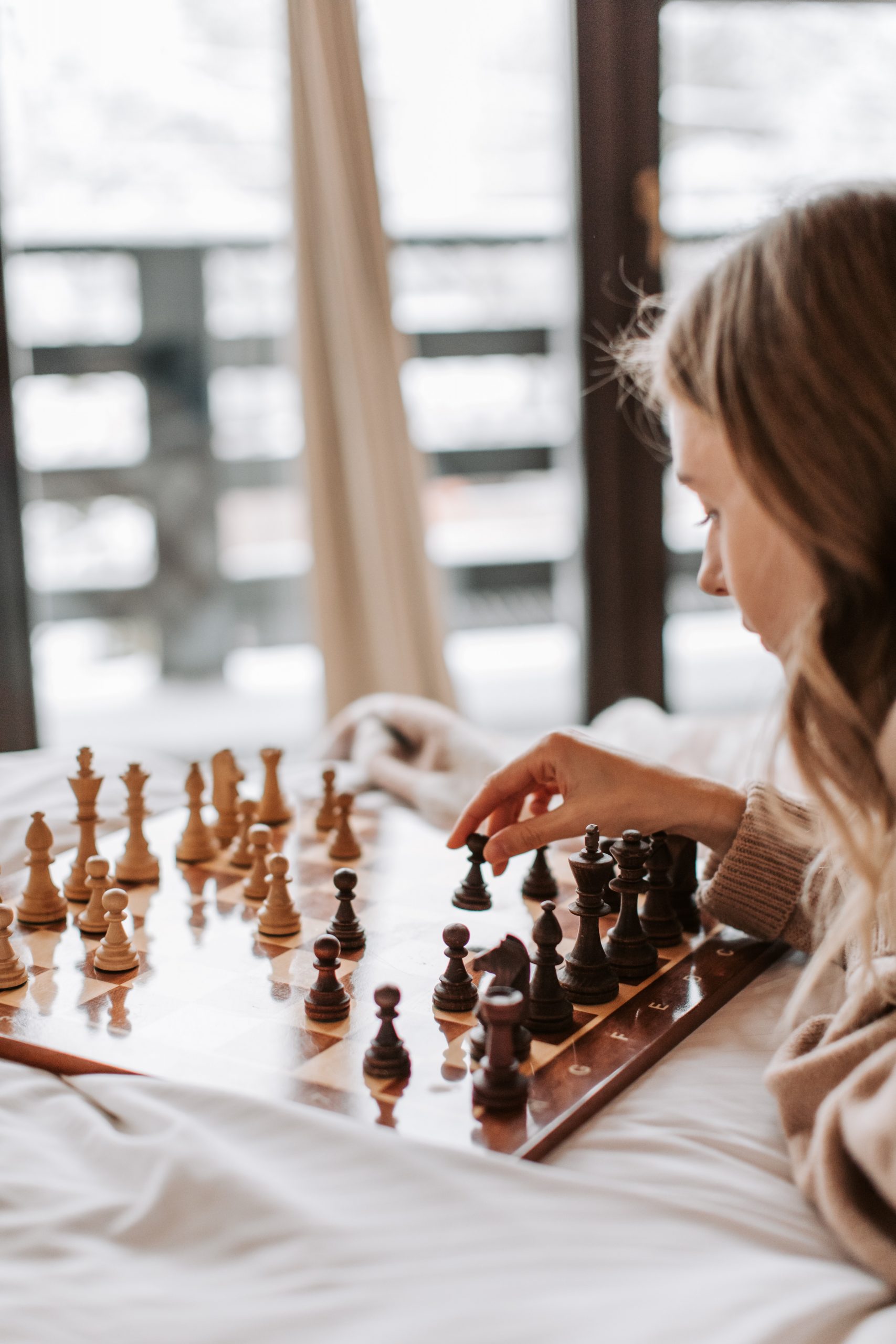Every level of player, from chess openings for beginners to powerful Grandmasters, may make a mistake at some point. Even in the most recent edition of the famous Sinquefield Cup, which is currently taking place in Saint Louis, we have observed a few unexplained instances from top Grandmasters.
Knowing that mistakes may happen even at the greatest levels of competition may be a source of relief for the rest of us, but it is something we would prefer to avoid at all costs. In most cases, mistakes are unexplained; it appears as if our brain has abruptly decided to stop collaborating. However, there are a few things you may try to do in order to reduce the likelihood of such occurrences.
Here’s a few pointers to keep in mind.
1. Always keep an eye out for your opponent’s potential threats.
The majority of errors occur because we aren’t paying attention to our opponent’s danger and instead proceed with our own plans, just as if we were alone in the game. It is critical that you ask yourself the following question after each of your opponent’s moves: what is his threat? What exactly does he want to do with his most recent move?
2. Double-check your lines of dialogue.
Calculation errors frequently manifest themselves early in the line, so double-check that you haven’t overlooked anything. All potential movements, both for you and your opponent, should be taken into consideration. The majority of blunders occur when we neglect to explore for further replies from our opponent and instead focus just on a few “obvious” movements from him or her.
3. Find out what active movements your opponent is doing!
When looking for your opponent’s candidate movements, start with the ones that are currently in play! We are referring to captures, checks, and actions that represent a direct danger to the opponent. Examine how your move might alter the situation and what new tactical concepts may be implemented in your opponent’s advantage if you made it.
4. Keep an eye out for intermediate maneuvers.
The most active actions of your opponent are easy to ignore, but if you train yourself to seek for them, it will be much simpler to notice them. These players are particularly hazardous in lines that you believe to be forced (recaptures are perhaps the clearest example), and one simple check or mate threat can radically alter the situation.
5. Check to see if there is any missing or misplaced hardware.
Pieces that are bad or misplaced are frequently the starting point for tactical themes. Make certain that all of your pieces are properly positioned and safeguarded at all times throughout the game.

6. Calculate the forced lines first, then everything else.
When we examine a large number of candidate moves and compute a large number of lines, it is easy to ignore the most straightforward continuation. This may be avoided by beginning with the forced sequences and determining whether or not there is anything wrong with them before moving on to the other lines.
7. Identify and solve simple techniques
This may seem like a cliche, but it is, in reality, a straightforward method of avoiding costly mistakes. To a greater extent than you focus on tactics, you will become more aware of the tactical themes existing in the situation as time goes on. A few problems every day will help you enhance your tactical vision as well as the overall quality of your game.
8. During the game, take a few seconds to unwind and enjoy yourself.
A chess game may become rather heated, and our brains might become “stuck” on a single notion from time to time. After a particularly stressful situation that necessitates a great deal of deliberation, it might be beneficial to unplug for a few minutes and walk about to clear your thoughts. Once you’ve finished, return to the game and attempt to see it with fresh eyes; seek for new ideas and alternative continuations as you go.
9. Try to maintain your composure throughout the entire game.
We can easily become enthralled by a particularly fascinating maneuver that we have observed or by a material victory. Suddenly, we get the impression that we are going to win, and we “forget” to accomplish some of the things that have been discussed before. This is the time of year when we are most prone to overlooking details and making the majority of our blunders. The converse is also true: when you feel that you are becoming a bit worse, try not to get too worked up about it. Maintain your composure and make every effort to put up the strongest possible defense.
10. Don’t be in a rush!
Don’t make the mistake of rushing into that apparent move you’ve noticed simply because it’s obvious to you. No matter how much time you’re pressed for, spend a few seconds to double-check your work and make certain that you aren’t going to hang something.

